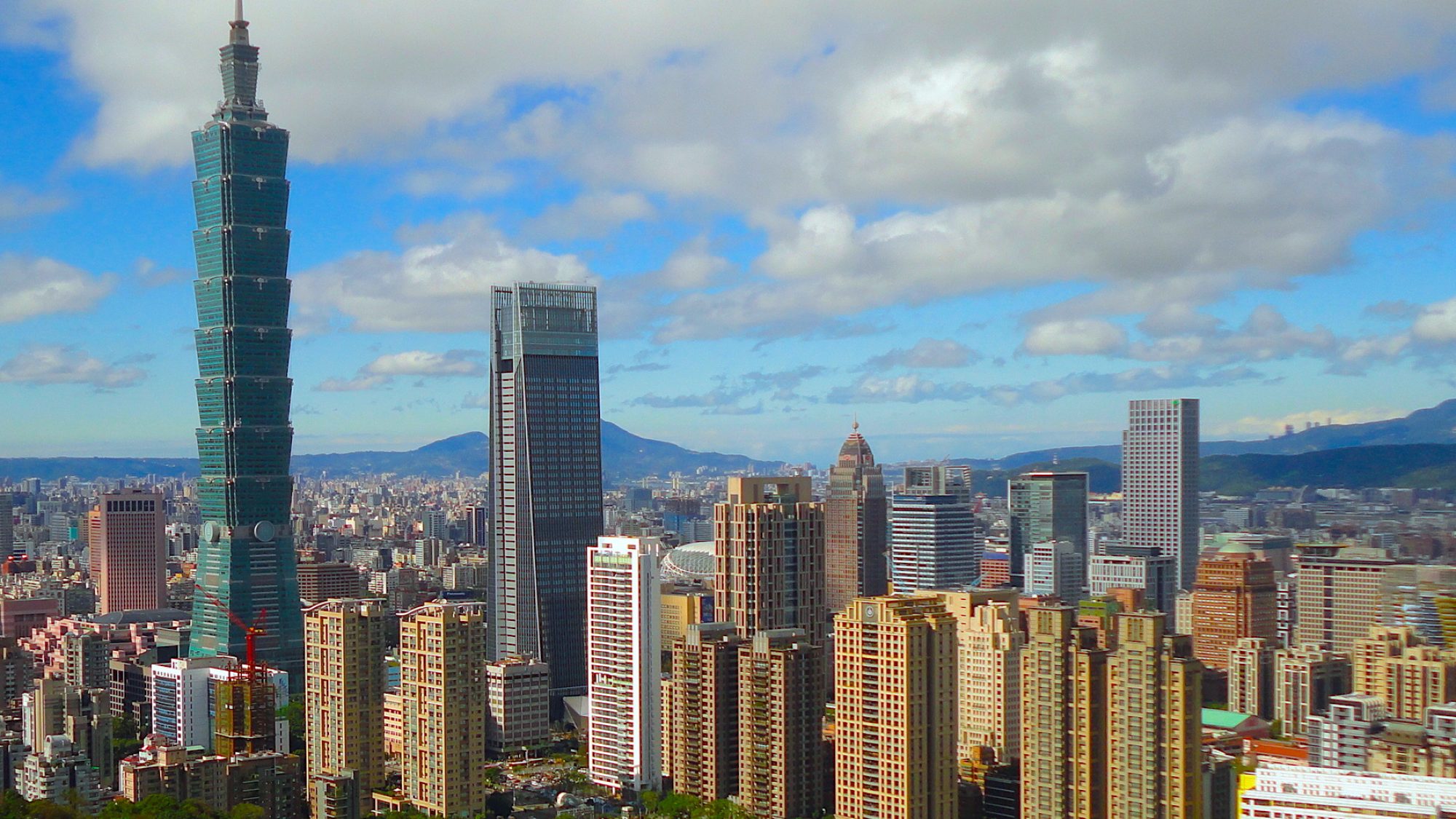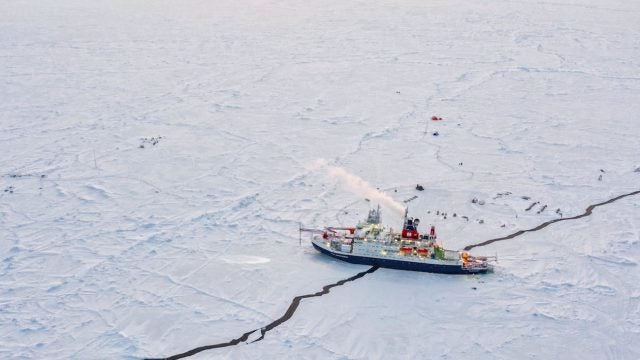
Title: China’s Efforts to Isolate and Intimidate Taiwan Are Pushing U.S. Allies Closer
China is pursuing a concerted strategy to isolate Taiwan internationally and intimidate it and its would-be supporters militarily. But Australia—a critical US ally in the region—has responded to China’s strategies by deepening its diplomatic ties with Taiwan and building its military deterrence capabilities. Ironically, Beijing’s efforts to isolate and intimidate are generating unintended outcomes that will make it harder for China to achieve its long-term goals.
For all the uncertainty surrounding the evolution of China’s strategy towards Taiwan, Beijing’s ultimate goal is clear. The Chinese Communist Party (CCP) seeks nothing less than the full absorption of Taiwan into China. Ending Taiwan’s de facto independence is an integral part of China’s national objectives. Reiterating now familiar points, Chinese President Xi Jinping unambiguously stated in October last year: “The Taiwan question arose out of the weakness and chaos of our nation, and it will be resolved as national rejuvenation becomes a reality.… Compatriots on both sides of the Taiwan Strait should stand on the right side of history and join hands to achieve China’s complete reunification and the rejuvenation of the Chinese nation.”
To realize its declared goals, China is ramping up its efforts to internationally isolate and intimidate Taiwan. Coinciding roughly with the 2016 and 2020 Taiwanese presidential elections, Beijing launched waves of economic coercion that caused the number of Chinese tourists visiting the island to drop precipitously. Beijing has also redoubled its efforts to exclude Taiwan from international organizations and convince countries to end their formal diplomatic ties with Taipei. These efforts have kept Taiwan out of World Health Assembly meetings since 2017 and have seen the Solomon Islands and Kiribati switch diplomatic recognition from Taiwan to China in 2019. Meanwhile, the People’s Liberation Army (PLA) has continued its longstanding military modernization efforts to provide Beijing with credible military options in a Taiwan Strait contingency and deter external intervention. The PLA Air Force is also testing the Taiwanese military, with surging numbers of its aircraft being sent across the Taiwan Strait since 2020.
Despite seeking to isolate and intimidate Taipei, Beijing’s strategies have ironically brought more friends to Taiwan’s side and made China’s overarching goal harder to achieve. Key US allies are now making diplomatic, trade, and military capability decisions with an eye to how best to support Taiwan and respond to potential aggression in the Taiwan Strait. This can be seen in diplomatic statements from groups such as the G7 in favor of “peace and stability across the Taiwan Strait,” more visits from French and other lawmakers to Taipei, and expanded trade and investment ties with the European Union. Australia is one of the most noteworthy examples of this prioritization of Taiwan.
In addition to deepening trade connectivity with Taiwan and joining international calls to permit Taipei’s participation in the World Health Assembly as an observer, Australia has recently made language in support of Taiwan a prominent feature of its bilateral diplomacy. In the last twelve months alone, Australia has mentioned Taiwan in joint statements with Japan, France, the United States, and the United Kingdom. As well as expressing shared commitments to “peace and stability across the Taiwan Strait and encourag[ing] the peaceful resolution of cross-Strait issues,” the statements issued with Paris, Washington, and London also advocated “Taiwan’s meaningful participation in international organizations” in which statehood is not a prerequisite.
The 2021 Australia-US Ministerial Consultations (AUSMIN) joint statement used even stronger language, calling Taiwan a “leading democracy and a critical partner for both countries.” This language is significantly more rhetorically charged than the 2020 AUSMIN statement and is especially striking considering that the 2019 AUSMIN statement did not mention Taiwan at all. How this fortified and regular diplomatic messaging will impact Beijing’s policies towards Taipei remains to be seen. But regardless, these statements represent a dramatic uptick in Australia’s diplomatic support for Taiwan.
Though major new military capability projects are typically long-term endeavors, perhaps the most consequential shift was Australia’s decision to acquire at least eight long-range nuclear-powered submarines. Under the Australia-United Kingdom-United States (AUKUS) security partnership announced last year, Australia is seeking submarines that can stay deployed for extended periods in distant waters, including in the South and East China and Philippine Seas that surround Taiwan. Not only will these new submarines be well suited to deter China more generally, but Canberra appears to have chosen these platforms to contribute to the balance of US-led allied power in the event of conflict scenarios, including those in the Taiwan Strait.
Regardless of the diplomatic and political costs of Canberra’s decision to scrap the French submarine contract, Australia is positioning itself to be able to field powerful military platforms in high-intensity warfare scenarios involving Taiwan. Although any eventual Australian decision to come to Taiwan’s defense would depend on the political, diplomatic, military, and other particulars of the case, Canberra is nevertheless acquiring the military capabilities that would allow it to respond to Taipei’s call should it decide to do so.
To be sure, there is more that Australia could be doing to support Taiwan in a manner consistent with Canberra’s longstanding one-China policy. The Royal Australian Navy has not conducted a publicized Taiwan Strait transit since 2018, while currently serving Australian parliamentarians have not visited Taiwan for years—a practice that was relatively commonplace for a period prior to the early 2010s. Notwithstanding recent online engagements between Australian and Taiwanese trade and economic affairs ministers and former Australian Prime Minister Tony Abbott’s October 2021 visit to Taiwan, political contact between parliamentarians in Canberra and Taipei could be expanded considerably.
Moreover, given Tokyo’s deep ties with Taipei, there is likely more that close US allies Japan and Australia could do in concert with the United States to offset Taiwan’s international isolation. This might include elevating Taiwan as a focus of a revived Australia-Japan-United States Trilateral Strategic Dialogue and exploring avenues for deeper and more coordinated trade and economic policy collaboration with Taipei. Irrespective of the scope for more initiatives, the rapid rise of Taiwan as a priority in Australia’s foreign and defense policy is a striking demonstration of how China’s own actions have made achieving its goals in Taiwan harder.
Will these Australian and broader regional responses shift China’s desired end state? Probably not. For the CCP, absorption of Taiwan is a critical element of the “great rejuvenation of the Chinese nation.” No amount of strongly worded joint statements, engagements with Taiwanese ministers, or new military capability is likely to change China’s overarching goal. As Chinese President Xi has emphatically declared: “We will never allow anyone, any organization, or any political party, at any time or in any form, to separate any part of Chinese territory from China!”
But while these new regional initiatives may not alter China’s ends, they will complicate the means that the Chinese government employs. Beijing’s international isolation efforts are directly counteracted by regional moves to develop deeper economic and political ties with Taipei and raise the prominence of Taiwan in bilateral and ‘minilateral’ diplomatic messaging. Meanwhile, China’s attempts to militarily intimidate Taiwan and its would-be supporters will be blunted by defense capability acquisitions designed, among other things, to credibly respond to the PLA’s potential use of force in the Taiwan Strait.
Despite these regional efforts, Beijing is likely to intensify its criticisms of international engagement with Taipei and test the capabilities and reactions of the Taiwanese military through regular PLA Air Force flights across the Strait. But for now, at least, key regional countries have viable and calibrated responses to China’s actions that both tangibly push back against Beijing’s efforts to isolate and intimidate Taipei and send strong signals about the potential costs of any military escalation.
Of course, other Indo-Pacific groupings and countries could do more. Although the Quad security partnership between Australia, Japan, India, and the US is committed to “uphold[ing] the international rules-based order where countries are free from all forms of military, economic and political coercion,” it has so far remained conspicuously silent on Taiwan. At the same time, many key regional powers, such as Indonesia and India, have not embraced public diplomatic support for Taiwan. Still, with US allies like Australia using rhetoric and military acquisitions to frustrate China’s efforts to isolate and intimidate, Washington can be confident that it is not alone in its efforts to maintain the peaceful status quo in the Taiwan Strait.
…
Dr Benjamin Herscovitch is a Research Fellow jointly appointed to the Australian National University’s National Security College and School of Regulation and Global Governance. His primary areas of research are Australia-China relations, China’s statecraft, and Australian foreign and defense policy.
Image Credit: Heeheemalu, CC BY-SA 4.0
More News

Critical maritime infrastructures (CMI), and in particular undersea communication cables, are increasingly under threat of attacks by malign actors who benefit from asymmetric capabilities and jurisdictional complexities in the maritime…

This article explores how the Palestinian crisis and the death of the two-state solution endangers the Hashemite Kingdom of Jordan. It illuminates the complicated relationship between Jordan, Israel, and Palestine…

This article explores the uncertain future of Arctic governance amid shifting global geopolitics. It argues that whether Washington and Moscow opt for confrontation or cooperation, multilateralism in the Arctic…